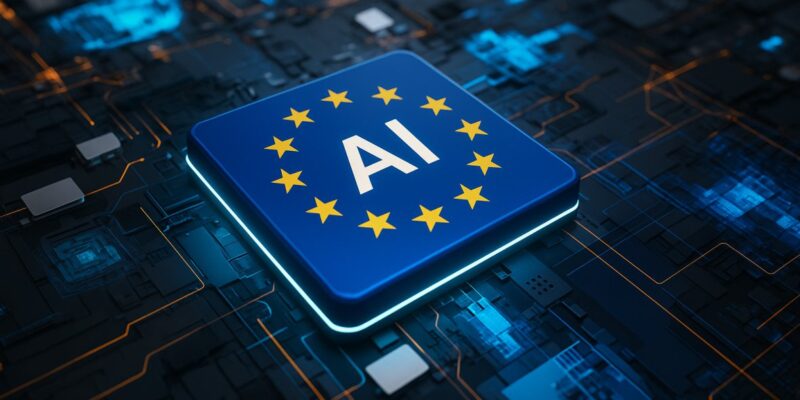
Key Takeaways:
- Regulatory Roadblock: Siemens and SAP warn EU’s AI Act is stifling innovation with overlapping, restrictive rules.
- Data Dilemma: Europe’s “treasure trove” of industrial data remains untapped due to cumbersome laws like the Data Act.
- Global Lag: CEOs fear Europe will fall behind the U.S. and China unless AI policies shift from risk-aversion to growth.
Europe’s AI Crossroads
According to two of Europe’s biggest technology champions, AI ambitions are running into a regulatory problem. In a rare joint interview withFrankfurter Allgemeine Zeitung, Siemens CEO Roland Busch and SAP CEO Christian Klein gave a dire warning: the EU’s proposals and rules governing AI (the EU’s AI Act), which is being designed to ensure that AI is developed ethically, is ultimately “choking” innovation in the marketplace.
At the core of their critique is the AI Act’s risk-based classification system, which imposes stringent transparency and safety rules on developers. While well-intentioned, Busch argues these rules are “contradictory“ and overlap with the Data Act, a law he called “toxic for digital business models.” Klein echoed this sentiment, noting that Europe’s problem is not a lack of infrastructure (such as data centers), but “locked-up data” that could fuel breakthroughs if regulations were more practical.
Main Implications
Europe’s AI regulations are moving slowly, especially compared to the lightning-fast developments in the U.S. and China. CEOs are definitely feeling the pinch, and this growing gap is going to have some major consequences.
Klein’s caution against blindly imitating the U.S. approach of investing heavily in data centers points to a more fundamental problem: Europe’s regulations view data as a liability rather than an asset. As Busch expressed, “We’re sitting on a treasure trove but can’t unlock it.”
The EU Commission has so far resisted calls to delay the AI Act, with key provisions taking effect in August 2025.
The Bottom Line
Europe’s AI dilemma mirrors its crypto conundrum: heavy rules, light innovation. While the EU prides itself on “ethical AI,” Siemens and SAP argue that overregulation could render Europe a spectator in the defining tech AI evolution.
Final Thought: Can Brussels find a middle ground? Or will its AI gold remain buried under red tape? For now, the ball is in the regulators’ yard, but the clock is ticking.
For more AI-related stories, read: Fake AI Startups Drain Crypto Wallets in Sophisticated Social Engineering Scam


